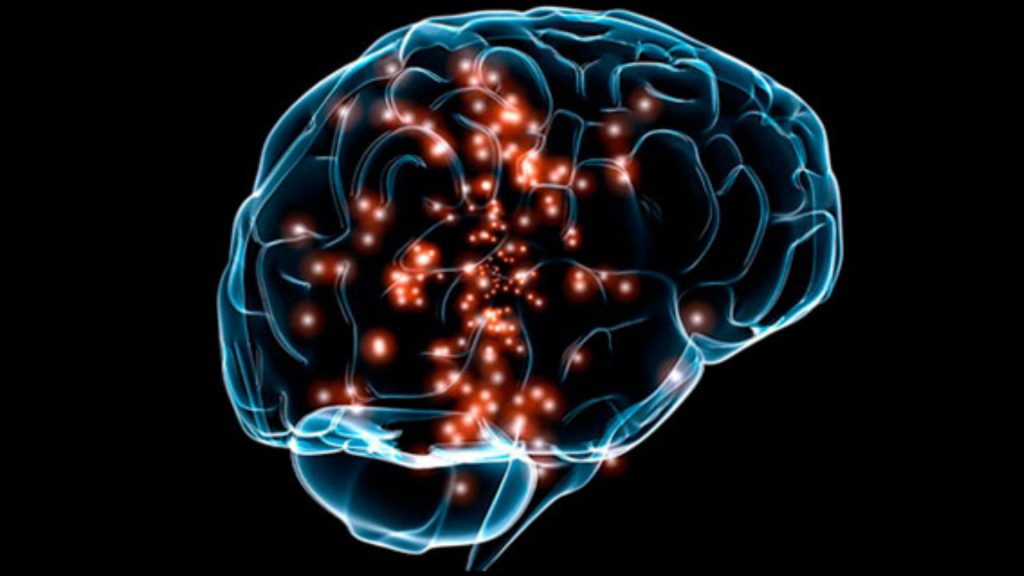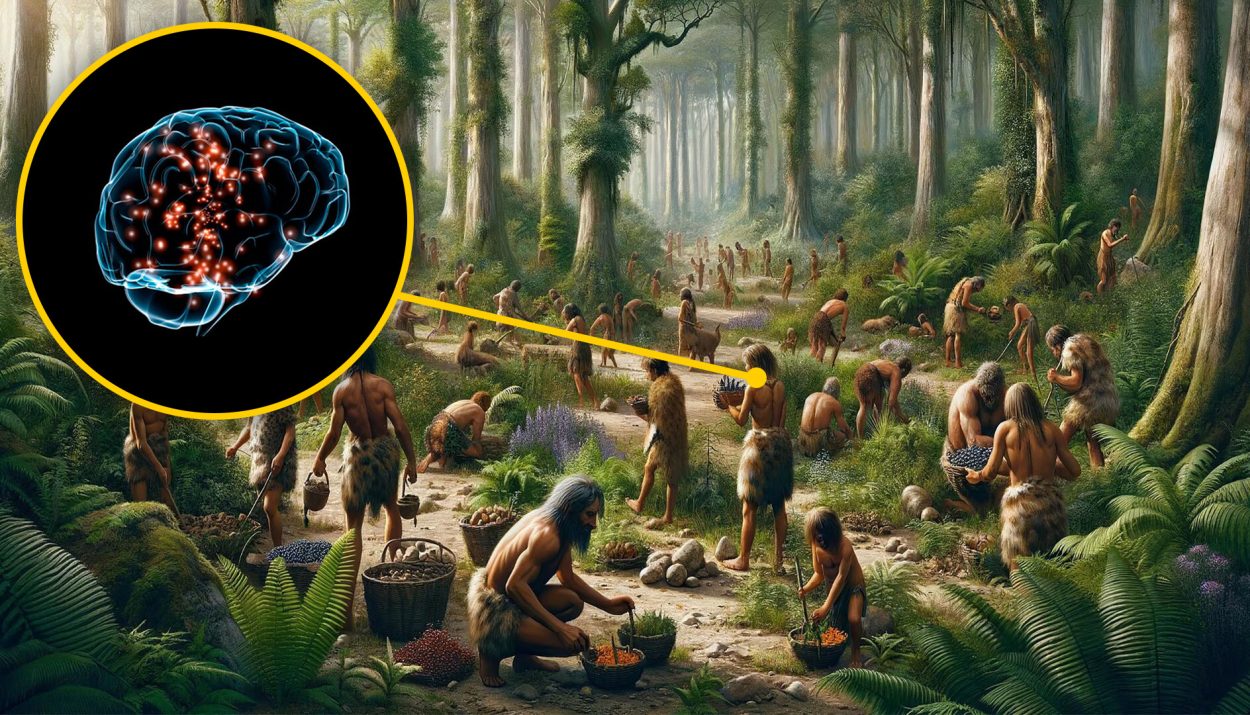Early in the human timeline, our ancient ancestors lived as hunter-gatherers. They spent their days searching for food, traveling to different places in search of food. The brains of these early humans adapted to optimize their foraging time.
Now, a research team from the University of Pennsylvania has conducted an intriguing experiment to test a compelling theory – that Attention Deficit Hyperactivity Disorder, or ADHD, is actually an ancient adaptation that benefited humans.
Isn’t ADHD a Modern Affliction?
You may have heard that ADHD is a modern affliction that is caused by the demands of our modern world. It is true that ADHD wasn’t officially recognized as a mental disorder by the American Psychiatric Association until the 1960s.

No one disputes that the diagnosis rate of ADHD has skyrocketed in the last 30 years, but does that mean that ADHD didn’t exist until the 1960s? Probably not. Most likely, ADHD has always been around. It has just been diagnosed more in recent years.
Has Modern Living Caused ADHD?
Because there was a spike in ADHD diagnoses in the last several decades, researchers looked for correlations with new technologies and lifestyle changes. Television, personal computers, video games, the internet, and cell phones have all been blamed for the rise in ADHD.

Other researchers speculate that new educational techniques, overscheduling our youngsters, and changing societal expectations that we have for children have put undue strain on their brains which manifests as ADHD.
What Is ADHD?
Classified as a neurodivergent disorder, ADHD impacts cognitive function and behavior. In a person with ADHD, the pathways in their brain connect differently than in the brain of a non-ADHD person. It can make the ADHD person impulsive, scatterbrained, and unfocused.

The “H” in ADHD stands for “hyperactivity.” The person may not be able to sit still, multitask, or follow multi step instructions. Simply put, a person with ADHD thinks differently. But “differently” doesn’t necessarily mean “bad.”
The Upside to ADHD
Too often, we think of ADHD as being a negative. Parents medicate their kids to help mitigate the impact of ADHD, however many experts and, indeed, patients with ADHD, will tell you that there are pluses to having ADHD.

People with ADHD are often more creative and unique. The atypical pathways in their brains help them think outside the box. Additionally, people with ADHD often possess high levels of energy, are skilled at problem solving, and can hyperfocus on certain tasks.
Could ADHD Be an Ancient Disorder, Not a New One?
But what if ADHD is not a new brain disorder after all? Could it be that ADHD is actually a very old condition? A group of researchers from the University of Pennsylvania believe ADHD may have been an evolutionary adaptation going back as far as 12,000 years ago. To see if this theory is plausible, researchers took a look at the lifestyles of early humans.

One feature of ancient humans was the hunter-gatherer lifestyle they lived. So, the researchers started there. The team of researchers from the University of Pennsylvania set out to learn if people with ADHD fared better or worse than people without ADHD when foraging for food.
Modern Tools to Study the Ancient Brain
The University of Pennsylvania scientists invited 457 people to participate in a unique experiment. The first step of the experiment was to have each participant answer a series of personal questions. From these questionnaires, it was determined that more than two-thirds – 67.3% – of the participants were diagnosed with ADHD.

Next, the researchers asked all the participants to play a specially designed video game. In the game, the players must try to collect as many berries as possible from the bushes and scrubs. The players have a certain length of time in which to gather the fruit.
The Data Revealed a Startling Find
The researchers asked the participants to play the berry-picking video game several times and recorded the results. They analyzed the data and made a startling find.

The participants who had been diagnosed with ADHD performed better at the berry-picking game. People with ADHD moved on to more abundant, berry-filled bushes four seconds faster, on average, than people without ADHD.
Is There a Relationship Between ADHD and Survival Instincts?
Is it possible that there is a direct correlation between ADHD and survival instincts? The University of Pennsylvania researchers believe that there is. They believe that the brains of the early humans evolved in a way that helped them be more efficient foragers.

For early humans, who spent large amounts of time searching for berries, fruit, seeds, and other edible plants, it was beneficial to know when to move on to the next bush rather than devoting too much time in a spot with little yields.
A Bigger Difference Than What It Seems
The University of Pennsylvania findings showed a four-second difference between people with ADHD and without. That may not seem like a significant difference, but the researchers are quick to point out that it is more beneficial than it seems.

Over time, those four seconds per berry bush can really add up. The end result is more food that is gathered and an increased survival rate. Having a brain with neural pathways that encouraged quick, decisive movements meant more opportunities for finding food.
“The Results Are Compelling“
One of the co-authors of the study was Dan Eisenberg, an associate professor at the University of Washington in Seattle. He explained, “Determining exactly how behaviors associated with ADHD may have been adaptive within past environments is difficult.”

He added, “These results are compelling in that they demonstrate measurable differences in the foraging strategies employed by individuals with and without ADHD.” Since we do not have access to an early human brain, it is impossible to prove the theory beyond a reasonable doubt.
Altering Our Genes
ADHD is a genetic disorder. Information about the disorder is encoded in our DNA. As the National Library of Medicine, if a child has one or both parent with ADHD, they “had an 80% chance of developing the disorder themselves.”

It could be that the genes of early humans were altered in favor of the ADHD brain. Then this benefit was handed down to their children and grandchildren, giving them the ability to become efficient foragers.
Experiments with Modern-Day Hunter Gatherers
As the researchers have noted, there are no 12,000-year-old brains that can be studied to help conduct further research on this. There are, however, still hunter-gatherer cultures around the world.

Although the University of Pennsylvania research team does not yet have plans in place to do a field study of a hunter-gatherer tribe, they acknowledge that this would be the next logical step to add to their experimentation. In fact, this might be the only way to prove their theory that ADHD is a much-older, evolutionary adaptation.
Will This Study Lead to New ADHD Treatments?
The information gleaned from this study, unfortunately, will not provide a cure for present-day ADHD patients. And there are a lot of them. In the U.S. alone, more than 8.7 million people, including roughly 6 million kids, have been diagnosed with ADHD.

What the information learned in the study can do is to help experts better understand the genetics behind ADHD and, more importantly, the benefits to having this condition. It may help alleviate some of the stigma surrounding ADHD so people can learn to live with their unique brains. After all, if ADHD helped our ancient ancestors survive and thrive, surely it can do the same thing for modern people.






